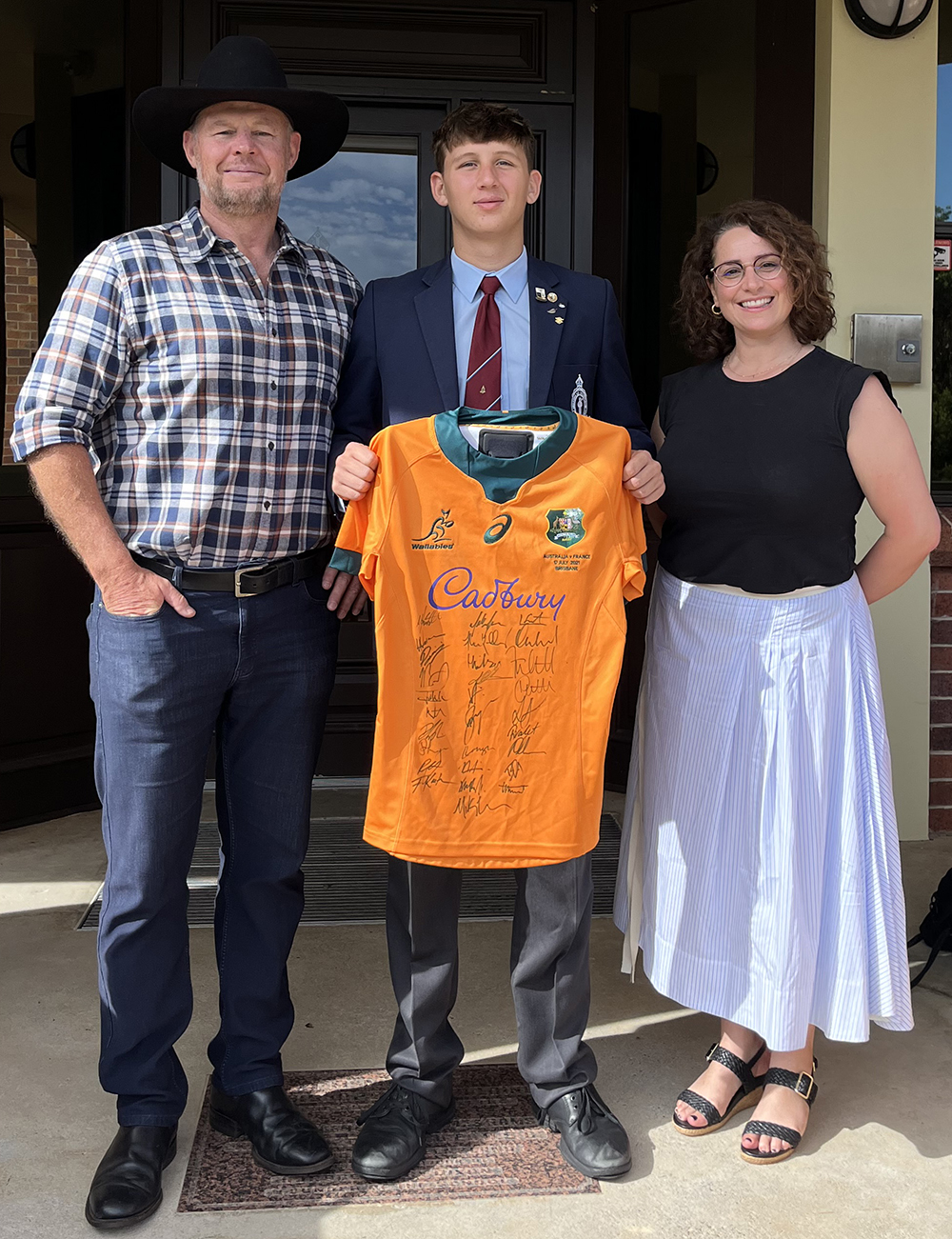Championing brain health: a parent’s perspective on concussion research
After his experience as a rugby player and an Infantry Officer in the Australian Army, Simon Moore-Wilton understands that we need a deeper understanding of concussion and its impact on the brain. So, when his family heard about QBI’s Concussion Study from The Southport School (TSS), they spoke with their son, Archer, about signing up.
Insights from personal experience
“I’ve been knocked out about six times while playing rugby as a child and an adult,” Simon said. “Being in the military, I have also seen mates dealing with physical and mental health injuries because of their service, where the symptoms are investigated, but not their underlying causes. There is more research that needs to be done.”

“As a responsible parent, the QBI Concussion study appealed because of what it could offer participants – the opportunity for an assessment of their baseline cognitive function and an in-depth understanding of when their brain has recovered if they get a concussion,” Simon said.
Signing Archie up for the study
Simon’s son, Archer (Archie), plays rugby union at number eight in the second row of the under-15 age group at TSS. Simon said Archie was keen to participate too.
“His generation is much more aware of concussion,” Simon said. “They know that if they get a head knock during a game, they need to wait for help. In 2024, Archie got a severe concussion. He ended up in the hospital and experienced memory loss and other symptoms for a while afterwards. Unfortunately, that was before we signed up for the study.”
Archie joined the study in early 2025 so that he could complete the baseline testing before school rugby training started.
Experiencing the comprehensive follow-up
During the school rugby season, Archie rolled away from a tackle, and one of the opposition players clipped him on the back of the head. Simon explained the knock was minor compared to the previous year, but it was treated as a concussion.
“QBI’s follow-up was excellent. Over those three weeks, the research team liaised with the school and made all the appointments. We had flexibility about where and when we attended Qscan. It wasn’t a huge imposition on our family and, as a parent, it gave me a level of confidence in Archie’s care.”

Playing the long game
Simon now works in advanced first aid, delivering training at industrial sites around Australia. He recognises the need for a long-term approach.
“When you break your leg, you can see the functional changes in that limb over time,” Simon said. “In the past, we’ve treated the brain as a separate system, a mystery organ, maybe because we can’t easily see what’s happening. But we need to think long-term and prioritise teaching young athletes how they can look after their brain health – from safe tackling techniques to taking time out to recover.
“I’d like to see the baseline testing and check-ins at intervals become part of a basis for your rugby-playing passport that allows players, coaches and health professionals to monitor and assess brain health and manage player risk over time. I also hope that Archie can access the same comprehensive support if he decides to keep playing in the future.”
Are you interested in getting involved in the QBI Concussion study?
If you’re inspired by the Moore-Wilton family’s commitment and have a student athlete aged 14 to 19 years at a GPS school in Queensland in rugby, basketball, or swimming, you can volunteer for the QBI Concussion study. You’ll find more details on QBI’s website
